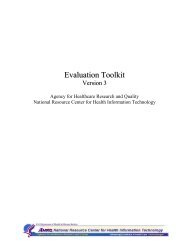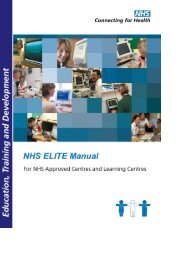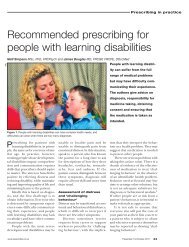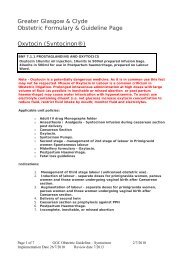The Fife Dementia Strategy: 2010 â 2020 - The Knowledge Network
The Fife Dementia Strategy: 2010 â 2020 - The Knowledge Network
The Fife Dementia Strategy: 2010 â 2020 - The Knowledge Network
Create successful ePaper yourself
Turn your PDF publications into a flip-book with our unique Google optimized e-Paper software.
4.12 Emergency Services<br />
AIM<br />
Emergency service providers are equipped with the skills and<br />
knowledge to effectively work with people with confusion or memory<br />
loss. Effective communication skills and being able to recognise when<br />
somebody may have dementia is an important part of many services provided<br />
by the Fire, Police or Ambulance Service, whether it is as a preventative<br />
measure or during a period of acute need.<br />
RECOMMENDATION TO ACHIEVE THIS<br />
4.12.1 <strong>Fife</strong> Council and NHS <strong>Fife</strong> work jointly with <strong>Fife</strong> Constabulary, the<br />
Scottish Ambulance Service and <strong>Fife</strong> Fire & Rescue to develop an<br />
appropriate level of dementia awareness.<br />
<strong>Fife</strong> Constabulary, <strong>Fife</strong> Fire and Rescue Service and the <strong>Fife</strong> branch of the<br />
Scottish Ambulance Service all play an important role in the lives of older<br />
people and people with dementia. All three services work on a regular basis in<br />
community outreach work to improve the lives and reduce the risks of older<br />
people, and also in emergency situations as required.<br />
<strong>Fife</strong> Fire and Rescue Service has identified older people as one of the at risk<br />
groups for having a fire in their home, and thus do preventative education and<br />
fire safety visits throughout <strong>Fife</strong>. <strong>The</strong> Scottish Ambulance Service works with<br />
older people daily through their patient transport service, and the Police play a<br />
key role in ensuring community safety and protecting vulnerable people such<br />
as those with dementia. <strong>The</strong>y may be involved with a person with dementia in<br />
a number of routine and emergency situations which require that the worker<br />
involved is able to identify and respond to the needs of the individual.<br />
In the short term this can be achieved by each service working jointly with<br />
NHS <strong>Fife</strong> and <strong>Fife</strong> Council to develop or participate in local dementia training<br />
and awareness events. In the long term it is necessary that staff are<br />
appropriately trained during induction with additional opportunities for ongoing<br />
development available. For all three organisations induction training in<br />
completed at a national level and thus work must begin here.<br />
Additionally, ensuring emergency services have access to the right<br />
information is often essential to the success of any operation. As highlighted<br />
throughout this document, appropriately crafted care plans may play an<br />
important role if someone with dementia is missing or requires emergency<br />
care. It is thus essential that care plans are kept up to date, have an<br />
appropriate amount of information and that emergency services are aware of<br />
how to rapidly access them.<br />
Also, <strong>Fife</strong> Telecare Development programme will continue to extend its work<br />
with emergency services. Currently the Telecare Programme Team is working<br />
81
















